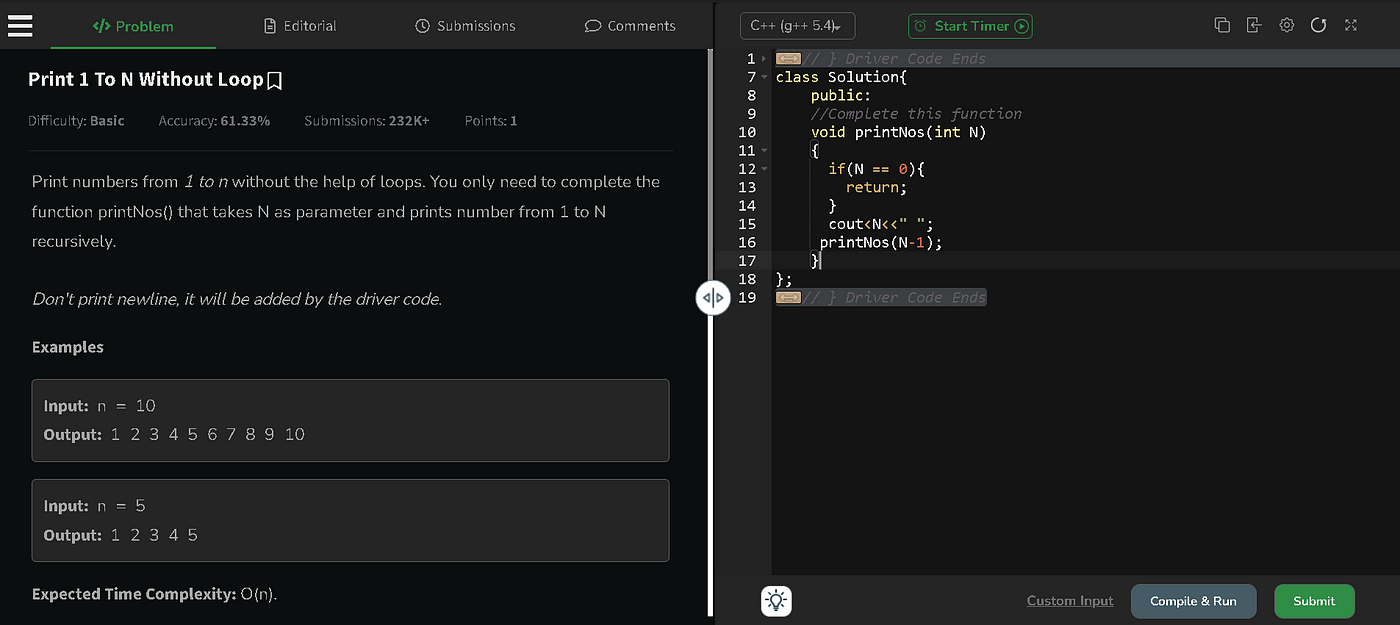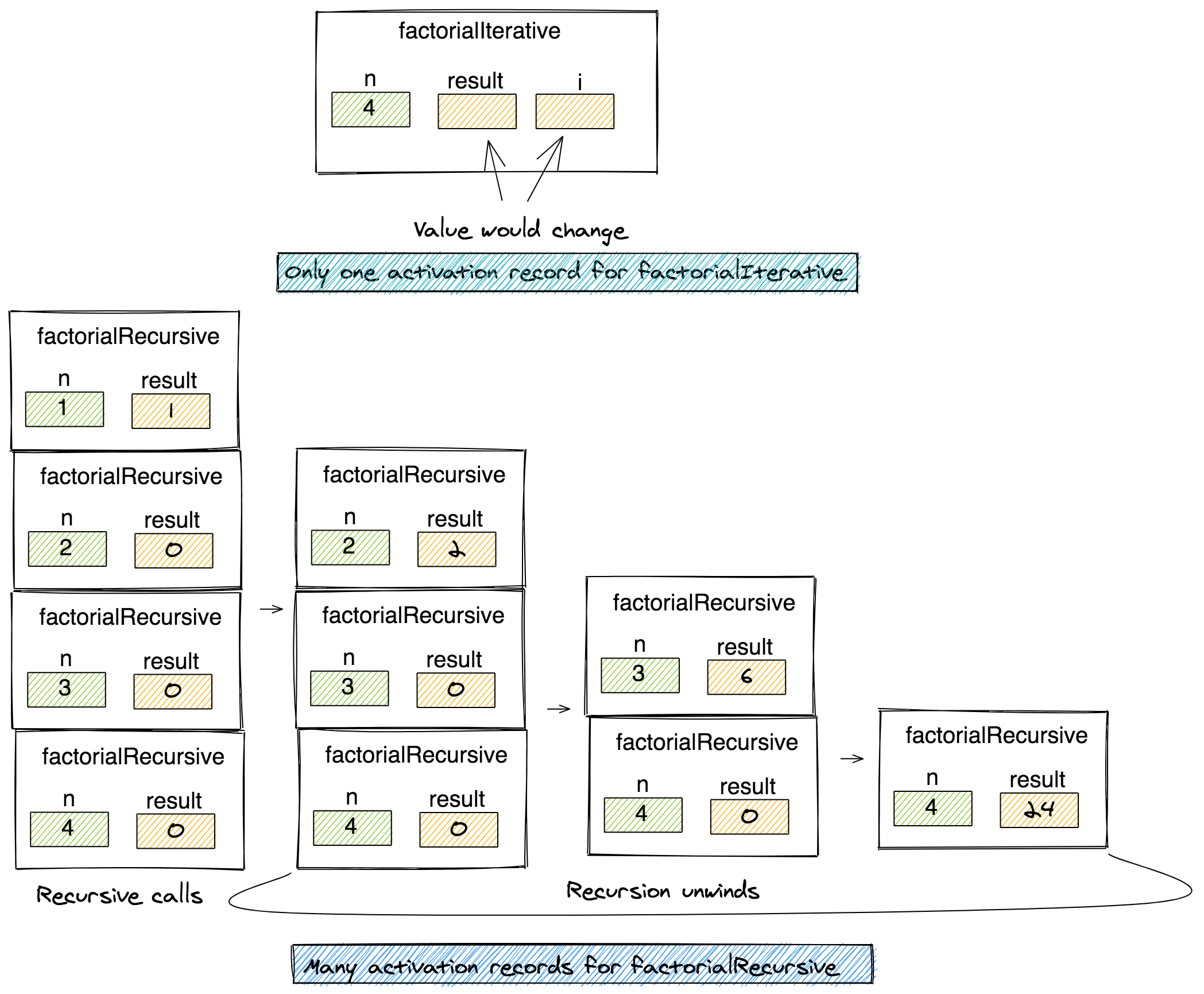Introduction
In competitive programming (CP), every millisecond counts. Choosing the right approach to solve a problem can be the difference between a Time Limit Exceeded (TLE) and an Accepted verdict. One of the most debated decisions is whether to use recursion or iteration. While both are foundational techniques, each has unique strengths and weaknesses. In this article, we break down the 5 key battles between recursion and iteration to help you master their use in CP.
Battle 1: Readability & Conceptual Clarity Recursion

often mirrors the natural structure of problems like tree traversal, backtracking, and divide-and-conquer algorithms. For example, a recursive DFS on a binary tree is usually more concise and closer to the logical flow of the algorithm.
However, iteration can make logic more explicit. Loops offer clarity in sequential processes like array manipulation or cumulative sums. Beginners often find loops easier to follow and debug than recursive calls.
- Winner: Recursion for elegance in tree/graph problems; iteration for clarity in straightforward logic.
Battle 2: Performance & Time Complexity

From a time complexity standpoint, both recursion and iteration can theoretically perform equally. But in practice, recursion introduces function call overhead, especially in interpreted languages like Python.
Languages with optimized compilers (e.g., C++ with tail recursion elimination) may reduce this penalty, but loops still tend to be faster for equivalent operations due to reduced overhead.
- Winner: Iteration wins on raw performance, especially for tight time constraints.
Battle 3: Space Complexity & Stack Limits

Recursion uses the call stack to store states. For deeply recursive functions, this can cause stack overflow errors, especially in problems with large input sizes (e.g., DFS on deep trees or recursive DP).
Iteration allows you to manage space more explicitly, avoiding reliance on system stack limits. Converting recursive DP to iterative (bottom-up) DP often reduces both space and crash risk.
- Winner: Iteration is safer and more space-efficient in large-scale problems.
Battle 4: Ease of Debugging

Debugging recursive code can be tricky, especially when dealing with nested or overlapping calls. Keeping track of multiple states in recursion often requires extra effort with print statements or IDE debuggers.
In contrast, iteration gives more predictable flow and variable scope, making it easier to debug. You can trace logic line-by-line without worrying about backtracking or call depth.
- Winner: Iteration is more beginner-friendly and debug-friendly.
Battle 5: Applicability to CP Problem Types

Some problems are naturally recursive:
- Tree traversal
- Backtracking (e.g., N-Queens, Sudoku)
- Divide and conquer (Merge Sort, Quick Sort)
Others are best suited to iteration:
- Greedy algorithms
- Dynamic programming (tabulation)
- Sliding window techniques
Knowing which technique maps best to the problem type is key in CP. You should also practice rewriting recursive logic in iterative form and vice versa.
- Winner: Tie — depends on the problem. Flexibility is your true weapon.
Conclusion
There’s no absolute winner in the recursion vs iteration debate. Instead, the best competitive programmers know when to use each. Recursion shines in elegance and conceptual clarity, especially for tree and backtracking problems. Iteration, however, offers better performance, control, and ease of debugging.
To master CP, practice converting recursive functions to iterative versions, analyze the time/space implications, and use each tool where it fits best. Ultimately, adaptability will help you stand out in contests and write efficient, elegant code under pressure.
- 5 Key Battles: Recursion vs Iteration in CP
- Explore 5 critical differences between recursion and iteration in competitive programming. Learn when to use each for peak coding performance.









